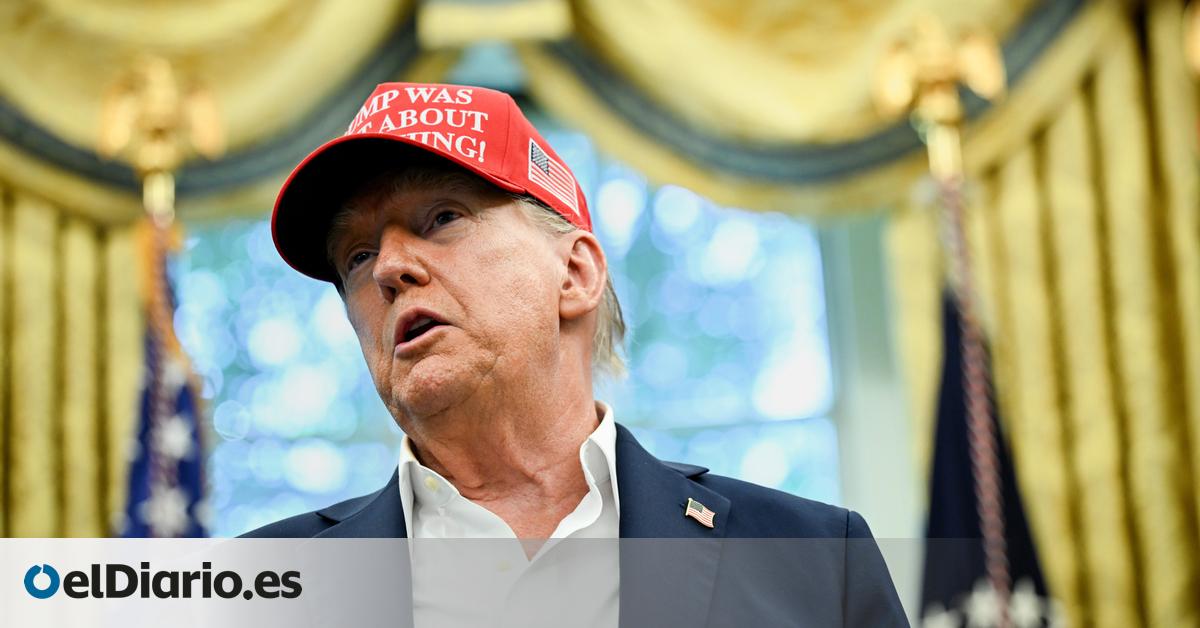
A Washington Court of Appeals has declared most of the tariffs of President Donald Trump illegal. The sentence issued this Friday considers that the president inadequately used the emergency powers to issue both the so -called reciprocal tariffs – where the current 15% to the EU is included – and the taxes to China, Canada and Mexico for the alleged immigration and fentanyl crisis. Even so, the court has postponed until October the entry in effect of the decision to give time to the administration to resort to the case. Fact that will all happen.
“Now, with the help of the Supreme Court, we will use them to benefit our nation,” Trump has written in Truht Social Trump, shortly after hearing the sentence and already assumes that the conservative majority that forms the high court will give him the reason. He has also labeled the Court of Appeals as “partisan” for not putting on his part: “Today a highly politicized Court of Appeals said incorrectly that our tariffs should be eliminated, but they know that the United States will win at the end.” He added: “All taxes are still in force.”
The decision is a judicial setback for one of the main pillars of Trump’s economic policies. The president has defended tariffs such as the magical recipe to solve the country’s fiscal deficit. Although Trump has also used them as a pressure tool to obtain economic concessions from other countries, at the cost of shaking the markets and throwing them into instability.
The tariffs that the Court of Appeals has annulled are all those that were declared under the Law of Economic Powers in International Emergencies (IEEPA), a rule that gives the President the power to face “unusual and extraordinary threats” during national emergencies.
The magistrates concluded that the IEEPA “does not authorize the taxes applied through executive orders.” On the other hand, the Court’s decision does not affect tariffs issued under another legal authority, such as Trump tariffs on steel and aluminum imports.
This Friday’s decision is a consequence of two cases that had reached the table of the Court of Appeals: one presented by five small US companies and another for twelve states governed by the Democrats, who argued that the IEEPA does not authorize tariffs. The Constitution grants the Congress, and not to the President, the authority to establish taxes and tariffs, and any delegation of this authority must be explicit and limited, according to the demands.
Historically, IEEPA had used to sanction enemies or freeze its assets. Trump has been the first president to make use of the 1977 standard to apply tariffs and thus overcome the authority of the Congress.
IEEPA does not explicitly mention tariffs, although it allows the president to adopt a wide range of actions in response to a crisis. The Trump Department of Justice argued that the rule allows applying taxes within the emergency provisions that authorize the President to “regulate” imports or block them completely.
Source: www.eldiario.es
